This article was co-authored by Trudi Griffin, LPC, MS. Trudi Griffin is a Licensed Professional Counselor in Wisconsin specializing in Addictions and Mental Health. She provides therapy to people who struggle with addictions, mental health, and trauma in community health settings and private practice. She received her MS in Clinical Mental Health Counseling from Marquette University in 2011.
There are 8 references cited in this article, which can be found at the bottom of the page.
This article has been viewed 49,186 times.
Anorexia is an eating disorder that is common among teens, especially young girls, as approximately 90-95% of anorexia sufferers are young girls and women.[1] This eating disorder can stem from societal pressure to appear thin or to have a certain body weight, personal factors like genetics or biology, and personality factors like anxiety, stress, or trauma.[2] The most common symptom of anorexia is extreme thinness or weight loss. However, there are also other physical and behavioral signs you can look for in your young daughter or a female friend to determine if they are struggling with anorexia. If they display any of these symptoms or signs, you should suggest they seek treatment for this potentially life threatening illness.т
Steps
Recognizing the Physical Signs
-
1Note if she appears underweight, with protruding bones and a sunken appearance. One of the major symptoms of extreme weight loss is having protruding bones, especially the collarbones and the chest bones. This is due to the lack of body fat on her body, leading to bone definition under the skin.[3]
- Her face may also appear sunken, with protruding cheekbones, and she may look overly pale or undernourished.
-
2Check if she seems tired, weak, or experiences fainting spells. Eating too little over a period of time can lead to signs of fatigue like dizziness, fainting spells, and an inability to do any physical activity. Someone with anorexia may also struggle to get out of bed or to complete day to day tasks due to extremely low energy from not eating properly or not eating at all.[4]Advertisement
-
3Notice if her nails appear brittle and her hair breaks easily or starts to fall out. Due to a lack of nutrients, her nails may break easily or appear brittle. As well, her hair may fall out in clumps or break off easily in large chunks.[5]
- Another known symptom of anorexia is the development of fine downy hair on the face and body, a condition known as lanugo. This is due to the body’s attempts to stay warm, despite a lack of nutrients and energy through eating and food.[6]
-
4Ask her if she has menstrual irregularities or does not get her period. Many young women who suffer from anorexia fail to get their period or have irregular menstrual cycles. In 14-16 year old girls, this condition is known as amenorrhoea or absent periods.[7]
- If a young girl develops amenorrhoea due to an eating disorder, such as anorexia, she is at risk of other health issues and should see a doctor as soon as possible.
Recognizing the Behavioral Signs
-
1Notice if she refuses to eat or maintains a very restrictive diet. Anorexia nervosa is an eating disorder where the sufferer refuses to eat in an attempt to achieve a certain body weight. If a person is struggling with anorexia, she will often refuse to eat or come up with excuses about why she cannot eat. She may also skip meals or pretend she has eaten when in fact she has not. Though she may appear hungry, she may deny her hunger and refuse to eat.[8]
- As well, she may create a very restrictive diet for themselves, whether it is counting calories so she eats significantly less calories than her body requires or only eating low fat foods that she thinks will not lead to weight gain. These are considered “safe” foods, and may be used as an excuse to show she is eating when in fact she is eating a lot less than she should be to maintain a healthy diet.[9]
-
2Be aware of any rituals she develops around eating. Many young girls who suffer from anorexia will develop food rituals to maintain control when they eat. She may push food around on her plate to make it look like she ate or she may pick at her food but not actually eat any of the food on the plate. She may also cut her food into small pieces or chew food and then spit it out.[10]
- She may also have a food ritual where she throws up after eating. Note if she goes to the bathroom after every meal and has issues with tooth decay or bad breath, which are both caused by the acid in vomit.
-
3Check if she is exercising excessively or has an extreme workout routine. This is likely due to a desire to maintain control over her weight and to feel she can maintain her weight loss. Many sufferers of anorexia will have an extreme focus on their exercise regime and may workout daily or multiple times a day in an effort to maintain their weight.[11]
- You should also note if she is ramping up her workouts, but her appetite has not increased or she is still not eating at all. This may be a sign her anorexia is getting worse and she is trying to maintain control over her exercise regime as a way to control her weight.
-
4Note if she complains about her weight or puts down her appearance. Anorexia is also a disorder that appears on a psychological level, where the sufferer constantly complains about her weight or puts down her appearance. She may do this casually while looking in the mirror, or she may struggle with her appearance when you go shopping together or go out in public. She may also talk about how overweight or unattractive she appears and how she desires a thinner body, even when she appears thin.[12]
- She may also practice “body checking”, where she repeatedly weighs herself, measures her waist size, and checks her body in the mirror. As well, many sufferers of anorexia will wear baggy clothing to hide their bodies or to avoid noticing their weight.
-
5Ask her if she is taking diet pills or weight loss supplements. In an effort to lose weight, she may take diet pills or weight loss supplements to speed up the process. Using these substances are a big part of trying to control weight gain and weight loss.[13]
- She may also take laxatives or diuretics, which are medications that helps to remove fluid from the body. In fact, these medications all have little effect on the calories she absorbs in food and will not affect her weight.
-
6Notice if she withdraws from friends, family, and social situations. Often, anorexia goes hand in hand with depression, anxiety, and low self-esteem, especially in young girls. A person with anorexia may isolate herself from friends and family, and avoid social situations or activities. She may refuse to participate in activities she used to enjoy or withdraw from being around friends or family she used to get excited about hanging out with.[14]
- Her anorexia may start to affect her performance in school, her ability to socialize with her peers, and her ability to complete tasks at her job or at home. These shifts in behavior could be signs that she may be struggling with anorexia and needs your support and help in order to seek treatment for this illness.
References
- ↑ https://www.nationaleatingdisorders.org/learn/by-eating-disorder/anorexia
- ↑ http://www.mayoclinic.org/healthy-lifestyle/tween-and-teen-health/in-depth/teen-eating-disorders/art-20044635
- ↑ https://www.nationaleatingdisorders.org/learn/by-eating-disorder/anorexia
- ↑ https://www.hopkinsmedicine.org/health/conditions-and-diseases/eating-disorders/anorexia-nervosa
- ↑ https://www.nationaleatingdisorders.org/learn/by-eating-disorder/anorexia
- ↑ https://www.ncbi.nlm.nih.gov/pmc/articles/PMC2836432/
- ↑ https://www.eatingdisorderhope.com/information/anorexia/anorexia-amenorrhea
- ↑ http://www.timberlineknolls.com/eating-disorder/signs-effects/
- ↑ http://www.nhs.uk/Conditions/Anorexia-nervosa/Pages/Symptoms.aspx
- ↑ http://www.nhs.uk/Conditions/Anorexia-nervosa/Pages/Symptoms.aspx
- ↑ http://www.mayoclinic.org/healthy-lifestyle/tween-and-teen-health/in-depth/teen-eating-disorders/art-20044635?pg=1
- ↑ http://www.mayoclinic.org/healthy-lifestyle/tween-and-teen-health/in-depth/teen-eating-disorders/art-20044635?pg=1
- ↑ http://www.nhs.uk/Conditions/Anorexia-nervosa/Pages/Symptoms.aspx
- ↑ http://www.nhs.uk/Conditions/Anorexia-nervosa/Pages/Symptoms.aspx
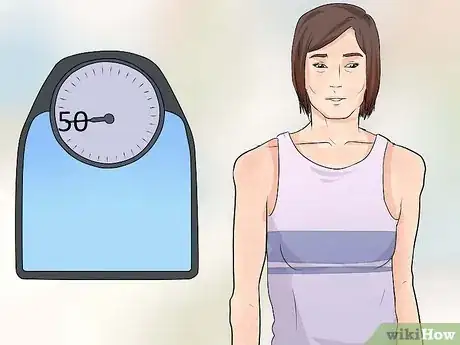
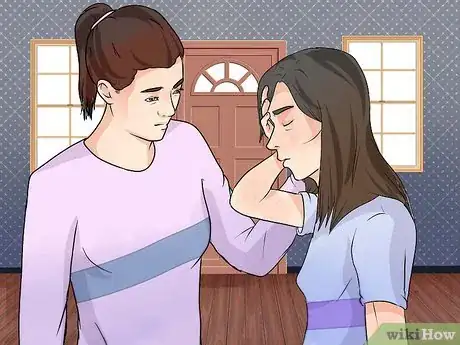
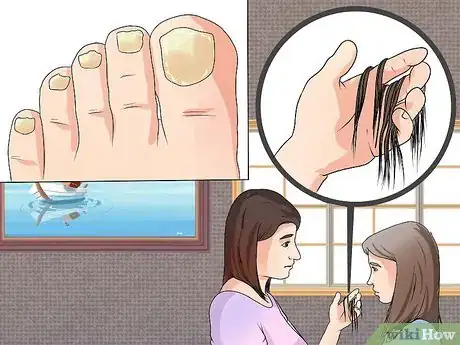
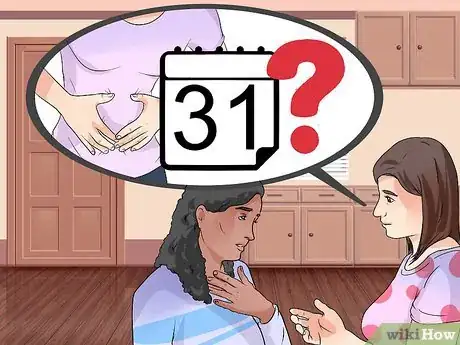
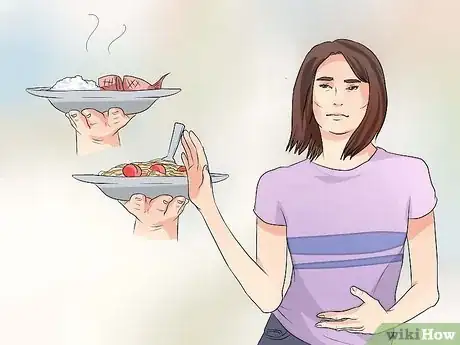
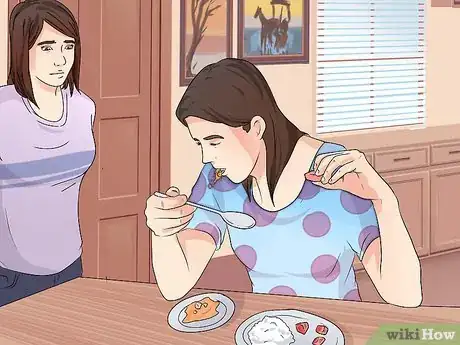
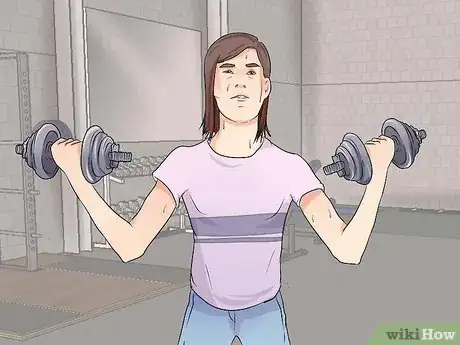
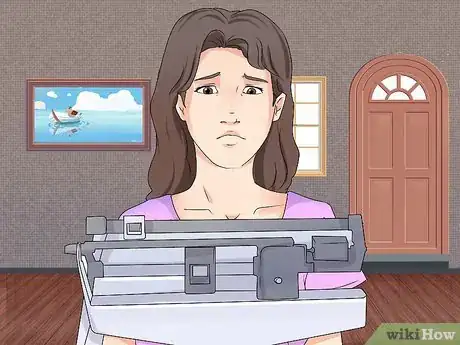
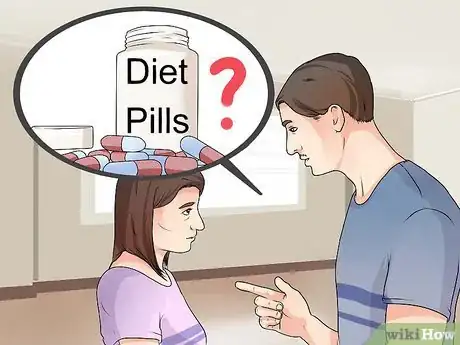
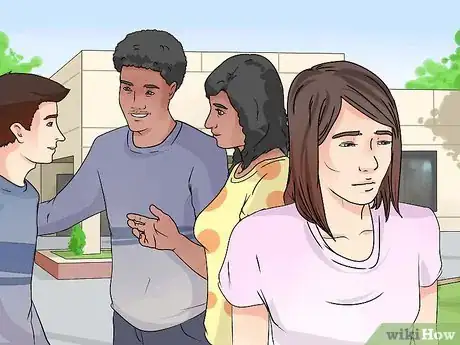
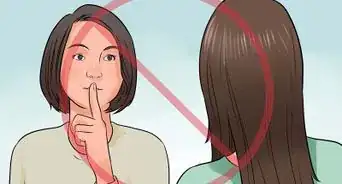
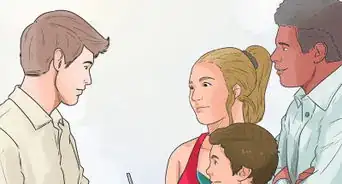

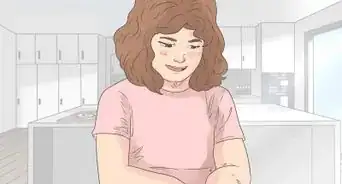







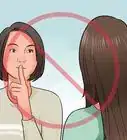






































Medical Disclaimer
The content of this article is not intended to be a substitute for professional medical advice, examination, diagnosis, or treatment. You should always contact your doctor or other qualified healthcare professional before starting, changing, or stopping any kind of health treatment.
Read More...